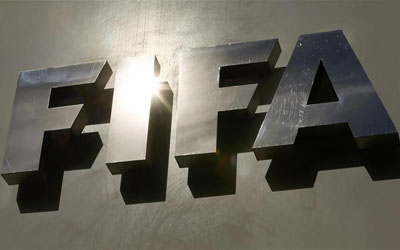FIFA Approves Reform Proposals to Become “Modern, Trusted and Professional Sports Organisation”
December 3, 2015
The FIFA Executive Committee has unanimously approved a set of proposals by the FIFA Reform Committee that will allow for changes to FIFA’s governance structure.
The proposals will need to be ratified by FIFA’s congress at its extraordinary seesion in Zurich on 26 February.
Among the reform proposals include a term limit of 12 years for a FIFA president, an increase in the number of women involved in the decision-making process and compulsory and comprehensive integrity checks for all members of FIFA’s standing committees.
FIFA’s Acting President Issa Hayatou said: “These reforms are moving FIFA towards improved governance, greater transparency and more accountability. They mark a milestone on our path towards restoring FIFA’s credibility as a modern, trusted and professional sports organisation.
“This signals the beginning of a culture shift at FIFA. It is important to recognise that today’s recommendations build on the foundations established by the IGC in 2011 under Mark Pieth’s leadership, which included the creation of an independent chairman on the Audit and Compliance Committee and splitting the Ethics Committee into investigative and adjudicatory chambers.
“As the February Congress approaches, I want to encourage all presidential candidates to embrace this spirit of reform and, as they campaign, to make clear their plans on how they would help FIFA enact these and other reform measures, should they be elected.”
The ExCo also discussed the proposal by the Reform Committee to increase the number of teams participating at the World Cup from 32 to 40, but a decision has yet to be made on this and it will be debated further.
The main reforms to be passed on to the Congress are:
– Term limits: maximum term limits of three terms of four years for the FIFA President as well as all members of the FIFA Council (see below), the Audit and Compliance Committee and the judicial bodies
– Separation of political and management functions: clear separation of “political” and management functions. The FIFA Council (replacing the FIFA Executive Committee) will be responsible for setting the organisation’s overall strategic direction, while the general secretariat will oversee the operational and commercial actions required to effectively execute that strategy.
The members of the Council will be elected by the member associations of the respective region under FIFA’s electoral regulations, with a FIFA Review Committee to conduct comprehensive and enhanced integrity checks
Concrete steps to increase the role of women in the governance of football with a minimum of one female representative elected as a Council member per confederation
– Diversity: promotion of women as an explicit statutory objective of FIFA to create a more diverse decision-making environment and culture
– Independent committee members: key financial decisions to be made by the Finance, Development and Governance Committees, which will have a minimum number of independent members and whose activities will be audited by the fully independent Audit and Compliance Committee
– Enhanced committee efficiency: reduction of standing committees from 26 to nine, with increased participation of the football community, which will provide efficiency while ensuring that all member associations are involved in a more meaningful and effective way
– Integrity checks: compulsory and comprehensive integrity checks for all members of FIFA’s standing committees, conducted by an independent FIFA review committee
– Greater transparency and inclusion through broader stakeholder representation: creation of a dedicated Football Stakeholders Committee to include members representing key stakeholders in the game, such as players, clubs and leagues
{jcomments on}

